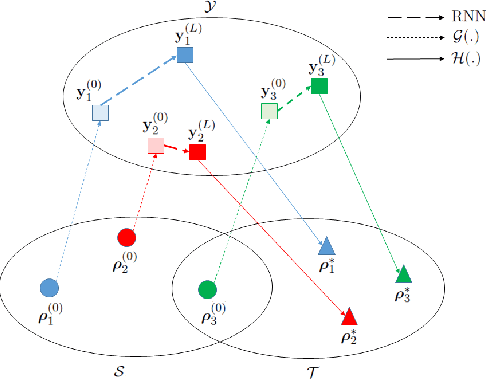Samia Kazemi
Deep Denoising Prior-Based Spectral Estimation for Phaseless Synthetic Aperture Radar
Jun 29, 2023Abstract:Incoherent processing for synthetic aperture radar (SAR) is a promising approach that enables low implementation costs, simplified hardware designs and operations in high frequency spectrum compared to the conventional imaging methods using coherent processing. Existing non-convex phaseless imaging algorithms offer recovery guarantees over limited range of forward models. In recent years, several deep learning (DL) based techniques have been introduced with the goal of extending applicability of phaseless imaging techniques to wave-based imaging modalities by addressing fundamental challenges, such as, lack of redundancy, non-uniqueness issues encountered commonly with inverse scattering models. In this paper, we introduce a DL-based phaseless SAR imaging approach that is designed under the premise that the spectral estimation technique, widely used for initializing non-convex phase retrieval algorithms, has significance far beyond generating good initial points. We extend the iterative power method for spectral estimation by using deep denoisers at each iteration, and subsequently design a deep imaging network within the plug-and-play framework. Finally, we verify the feasibility of our approach using synthetic SAR measurements.
Interferometric Passive Radar Imaging with Deep Denoising Priors
Dec 04, 2022Abstract:Passive radar has key advantages over its active counterpart in terms of cost and stealth. In this paper, we address passive radar imaging problem by interferometric inversion using a spectral estimation method with a priori information within a deep learning (DL) framework. Cross-correlating the received signals from different look directions mitigates the influence of shared transmitter related phase components despite lack of a cooperative transmitter, and permits tractable inference via interferometric inversion. We thereon leverage deep architectures for modeling a priori information and for improving sample efficiency of state-of-the-art methods. Our approach comprises of an iterative algorithm based on generalizing the power method, and applies denoisers using plug-and-play (PnP) and regularization by denoising (RED) techniques. We evaluate our approach using simulated data for passive synthetic aperture radar (SAR) by using convolutional neural networks (CNN) as denoisers. The numerical experiments show that our method can achieve faster reconstruction and superior image quality in sample starved regimes than the state-of-the-art passive interferometric imaging algorithms.
Unrolled Wirtinger Flow with Deep Priors for Phaseless Imaging
Aug 12, 2021



Abstract:We introduce a deep learning (DL) based network for imaging from measurement intensities. The network architecture uses a recurrent structure that unrolls the Wirtinger Flow (WF) algorithm with a deep prior which enables performing the algorithm updates in a lower dimensional encoded image space. We use a separate deep network (DN), referred to as the encoding network, for transforming the spectral initialization used in the WF algorithm to an appropriate initial value for the encoded domain. The unrolling scheme that models a fixed number of iterations of the underlying algorithm into a recurrent neural network (RNN) enable us to simultaneously learn the parameters of the prior network, the encoding network and the RNN during training. We establish sufficient conditions on the network to guarantee exact recovery under deterministic forward models and demonstrate the relation between the Lipschitz constants of the trained prior and encoding networks to the convergence rate. We show the practical applicability of our method on synthetic aperture imaging using high fidelity simulation data from the PCSWAT software. Our numerical study shows that the deep prior facilitates improvements in sample complexity.
 Add to Chrome
Add to Chrome Add to Firefox
Add to Firefox Add to Edge
Add to Edge